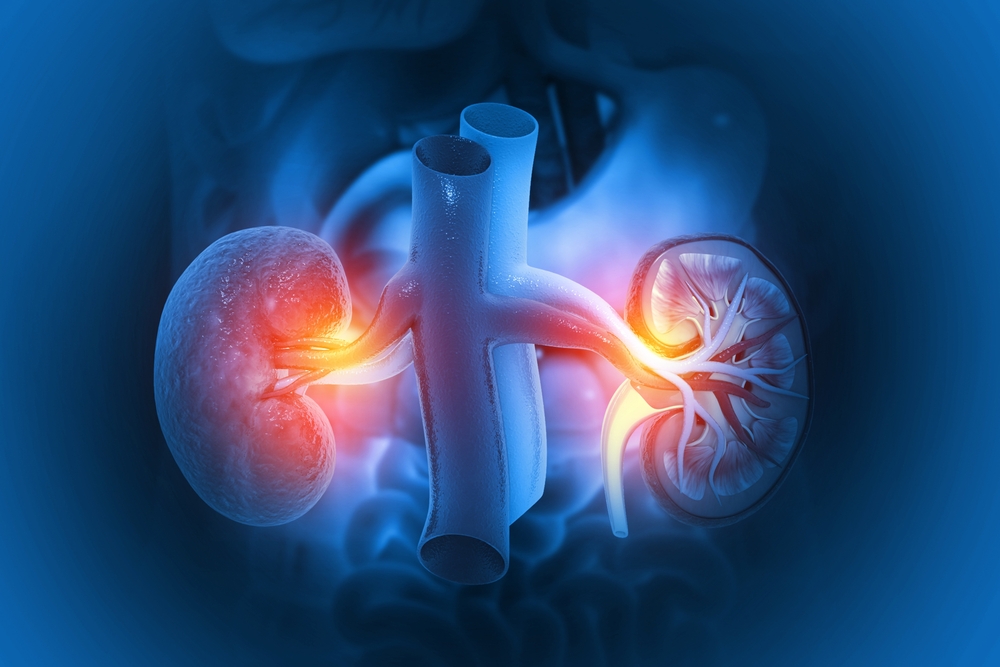

Kidney Stones – Causes, Diagnosis, and Treatment at Emirates Hospitals Group
Kidney stones are hard deposits of minerals and salts that form in the kidneys and can cause severe pain when they move through the urinary tract. Understanding the causes, symptoms, and treatment options is crucial for managing and preventing these stones.
Causes of Kidney Stones
Kidney stones develop when certain substances in the urine, like calcium, oxalate, or uric acid, crystallize and form solid masses. Common causes include:
- Dehydration: Insufficient fluid intake leads to concentrated urine, increasing the likelihood of crystal formation.
- Dietary Factors: A diet high in salt, sugar, or oxalate-rich foods (like spinach or chocolate) can increase the risk of kidney stones.
- Obesity: Being overweight or obese increases the concentration of substances that form kidney stones, raising the risk.
- Genetic Factors: A family history of kidney stones or certain genetic conditions can predispose individuals to develop stones.
- Medical Conditions: Conditions like gout, hyperparathyroidism, and certain metabolic disorders can lead to stone formation.
- Infections: Chronic urinary tract infections (UTIs) can lead to the formation of struvite stones.
- Certain Medications: Some medications, like diuretics, calcium-based antacids, and steroids, can contribute to stone formation.
- High Calcium Levels: Hypercalcemia, a condition where calcium levels are too high in the blood, can lead to calcium-based kidney stones.
Symptoms of Kidney Stones
The presence of kidney stones can cause various symptoms, including:
- Severe pain in the back, side, lower abdomen, or groin, often described as one of the most intense pains.
- Blood in the urine (hematuria), giving it a pink, red, or brown color.
- Frequent urination or a persistent urge to urinate.
- Nausea and vomiting, often accompanied by pain.
- Cloudy or foul-smelling urine.
- Difficulty passing urine or a feeling of incomplete emptying of the bladder.
Diagnosis of Kidney Stones
Diagnosing kidney stones involves a combination of physical exams, medical history, and imaging tests. Diagnostic methods include:
- Physical Examination: A doctor will assess the patient’s symptoms and check for tenderness or pain in the abdomen or lower back.
- Urine Tests: A urine sample may be tested to check for signs of infection or to identify the type of stones present.
- Blood Tests: Blood tests are performed to check for high calcium or uric acid levels that could indicate a predisposition to stone formation.
- Imaging Tests:
- CT Scan: The most accurate and commonly used test to locate kidney stones, as it provides detailed images of the kidneys and urinary tract.
- Ultrasound: A non-invasive imaging technique that can detect the presence of stones, particularly in the kidneys and bladder.
- X-rays: While not as precise as a CT scan, an X-ray can sometimes reveal the size and location of kidney stones.
- Intravenous Pyelogram (IVP): A contrast dye is injected into the bloodstream to help visualize the urinary tract and any blockages caused by kidney stones.
Kidney Stones Treatments in Dubai
At Emirates Hospitals Group, our urologists provide personalized care and advanced treatment options for kidney stones, ensuring the best possible outcomes. We also offer preventative advice to help reduce the risk of future stone formation. Treatment for kidney stones varies based on the size, type, and location of the stones, as well as the severity of symptoms. Common treatment options include:
- Hydration: Drinking plenty of fluids can help pass small stones by flushing them out through urine.
- Pain Management: Over-the-counter pain relievers, such as ibuprofen or acetaminophen, can alleviate discomfort during the passing of the stones.
- Medications: Alpha blockers may be prescribed to relax the muscles in the urinary tract and facilitate the passage of stones. If an infection is present, antibiotics may be given.
- Shockwave Lithotripsy (ESWL): A non-invasive procedure that uses sound waves to break large stones into smaller pieces that can be easily passed.
- Ureteroscopy: A procedure in which a thin tube (ureteroscope) is passed through the urethra and bladder to remove or break up stones located in the ureter or kidneys.
- Percutaneous Nephrolithotomy: A minimally invasive surgical procedure to remove large kidney stones directly through a small incision in the back.
- Surgical Removal: In rare cases where other methods are unsuccessful or the stone is too large, surgery may be required to remove the stone.
- Dietary and Lifestyle Changes: Modifying the diet to reduce salt and oxalate intake, along with staying well-hydrated, can help prevent future stones from forming.
Related Treatments
Request an appointment
Please complete the details and we will book you shortly.
